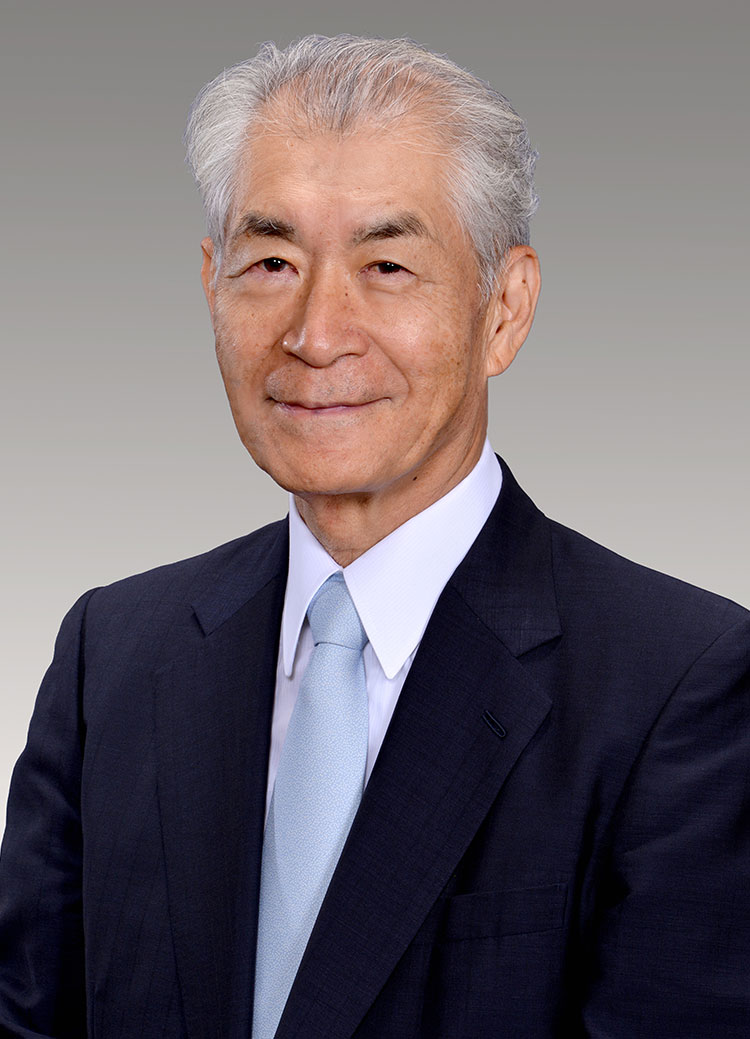
Tasuku Honjo
Distinguished Professor
Research Fields
Research Overview
Biography
| 1966 | M.D., Kyoto University |
|---|---|
| 1975 | Ph.D., Kyoto University |
| 1971-1973 | Fellow of Carnegie Institution of Washington, Department of Embryology |
| 1973-1974 | Visiting Fellow and Associate of National Institute of Child Health and Human Development, NIH |
| 1974-1979 | Assistant Professor of Faculty of Medicine, The University of Tokyo |
| 1979-1984 | Professor of School of Medicine, Osaka University |
| 1984-2005 | Professor of Faculty of Medicine, Kyoto University |
| 1996-2000 | Director of Faculty of Medicine/Graduate School of Medicine, Kyoto University |
| 2002-2004 | Director of Faculty of Medicine/Graduate School of Medicine, Kyoto University |
| 2005- | Specially-Appointed Professor of Graduate School of Medicine, Kyoto University |
| 2006-2017 | Visiting Professor of Kyoto University |
| 2006-2012 | Executive Member of the Council for Science and Technology Policy, Cabinet Office |
| 2012-2017 | Chairman, Board of Directors, Shizuoka Prefectural University Corporation |
| 2015-2024 | President of Foundation for Biomedical Research and Innovation (2018- Foundation for Biomedical Research and Innovation at Kobe) |
| 2017- | Distinguished Professor of KUIAS |
| 2018-2025 | Deputy Director-General of KUIAS |
| 2020- | Director of Center for Cancer Immunotherapy and Immunobiology (CCII), Graduate School of Medicine, Kyoto University |
| 2024- | Honorary President of Foundation for Biomedical Research and Innovation at Kobe |
Selected Papers
- T. Honjo, T. Kataoka, Organization of immunoglobulin heavy chain genes and allelic deletion model. Proc. Natl. Acad. Sci. USA 75, 2140–2144 (1978).
- Y. Yaoita, T. Honjo, Deletion of immunoglobulin heavy chain genes from expressed allelic chromosome. Nature 286, 850–853 (1980).
- Y. Ishida, Y. Agata, K. Shibahara, T. Honjo, Induced expression of PD-1, a novel member of the immunoglobulin gene superfamily, upon programmed cell death. EMBO J. 11, 3887–3895 (1992).
- M. Muramatsu, K. Kinoshita, S. Fagarasan, S. Yamada, Y. Shinkai, T. Honjo, Class switch recombination and hypermutation require activation- induced cytidine deaminase (AID), a potential RNA editing enzyme. Cell 102, 553–563 (2000).
- Y. Iwai, M. Ishida, Y. Tanaka, T. Okazaki, T. Honjo, N. Minato, Involvement of PD-L1 on tumor cells in the escape from host immune system and tumor immunotherapy by PD-L1 blockade. Proc. Natl. Acad. Sci. USA 99, 12293–12297 (2002).
- M. Al-Habsi, K. Chamoto, K.Matsumoto, N. Nomura, B. Zhang, Y. Sugiura, K. Sonomura, A. Maharani, Y. Nakajima, Y. Wu, Y. Nomura, R. Menzies, M. Tajima, K. Kitaoka, Y. Haku, S. Delghandi, K. Yurimoto, F. Matsuda, S. Iwata, T. Ogura, S. Fagarasan, T. Honjo, Spermidine activation of the mitochondrial trifunctional protein complex improves anti-tumor immunity in mice Science 378 (6618) (2022).
